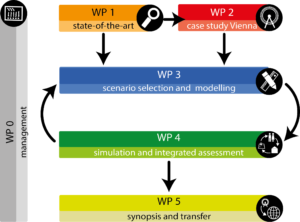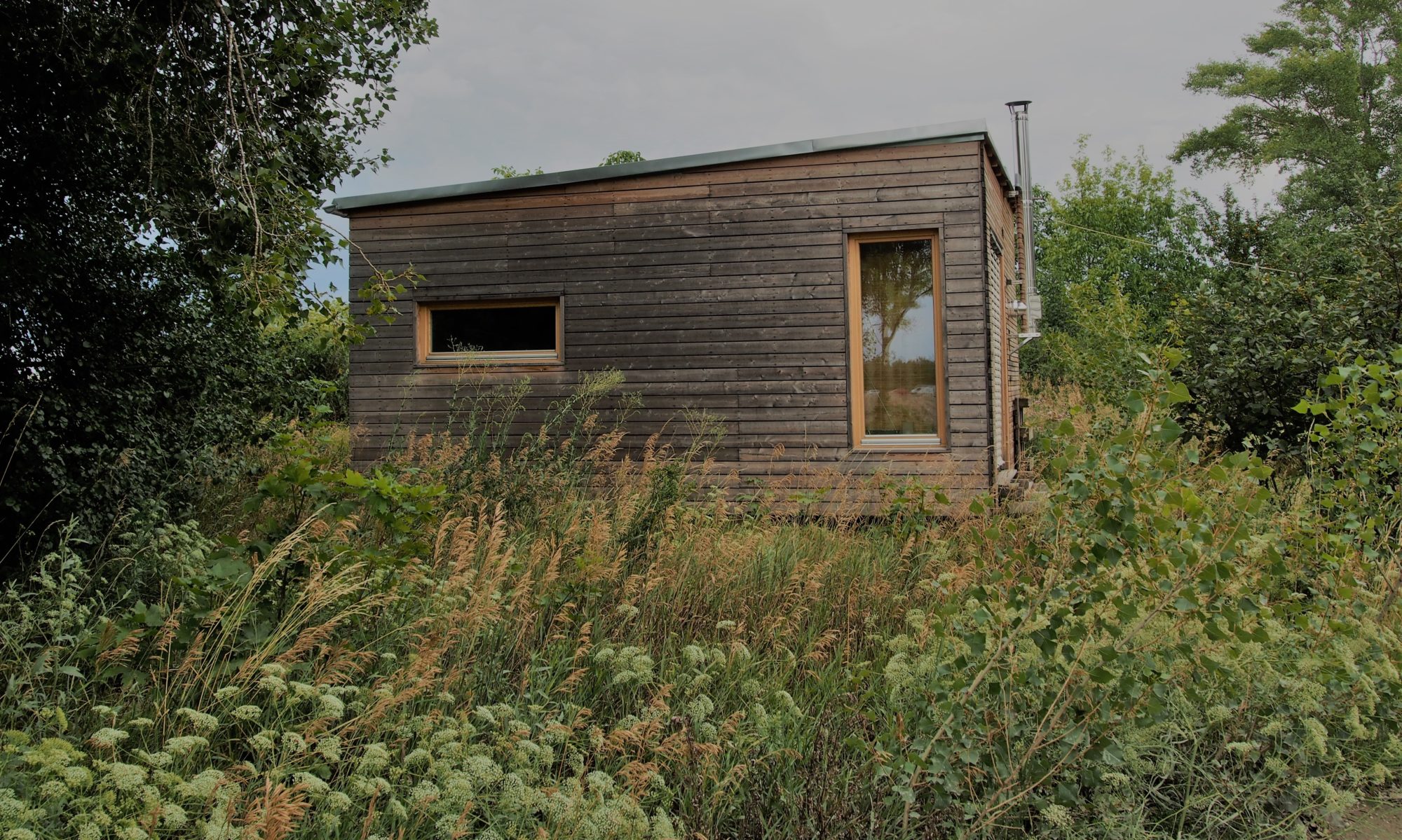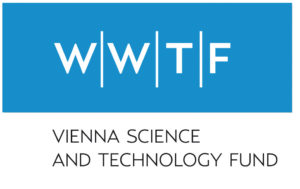This project is funded by WWTF Vienna Science and technology fund (Project call: „Environmental System Research 2017“). The financed project lasts 36 months (1.4.2018 – 31.3.2021)
For ease of collaboration, the project is divided into work packages (WP) that are briefly described below

© alchemia nova
WP0: Project management, organization and dissemination
WP0 is in charge of organizing the team, supervisor meetings, PhD schools and PhD jour fixe, controlling and documentation of project progress and financial issues, yearly reporting, communication to WWTF and coordination of dissemination activities.
Duration: April 18 – March 21
WP1: International state of the art research in all disciplines
This WP consists in screening and describing temporary housing environments as well as user groups in order to define the needs/requirements of people (target group), housing (building, construction type, open spaces) and area (urban space) and interrelate them.
Duration: April 18 – Nov. 18
WP2: Case study Vienna
WP2 contains a screening and analysis different aspects of Vienna: Influence of meta-strategies of the city, demographic and socio-economic development, land use plans and framework conditions on the situation for temporary housing environments. After the screening, a selection of sample areas will be made. A Checklist of requirements for suitable areas for relevant target groups and designation of potential model areas will be one of the outcomes of this WP. An Empirical innovation niche mapping to identify and study existing niche experiments in Vienna (focus: sustainable innovation) will be carried out as well. The results will be evaluated with stakeholders.
Duration: July 18 – March 19
WP3: Scenario selection and pop-up housing model development
This work package includes mapping of framework conditions and development of analytical framework for a “balanced” cross-cutting decision finding, synthesis and weighting of framework conditions and first set of scenarios, definition of technical, spatial, ecological, economic, innovation niche and social target criteria and innovation core procedures (thematic foci, social compositions, acquisition, protection and exit strategies, rule-sets, niche life cycles). Then (max.) 6 scenarios and subsequent pop-up housing models (architecture, building infrastructure, materials, size and use) will be selected and defined. The scenarios contain different framework conditions (e.g. building types and materials, energy infrastructure, solid waste, water and wastewater, green technologies, area, land usage, social situation, biodiversity). The scenarios and models will be tuned and adapted based on results of stakeholder’s workshop in WP2 and WP4. For the analysis of the framework conditions and development of scenarios, there will be held workshops (interdisciplinary expert dialogue based on WP1 and WP2).
Duration: Feb. 19 – July 20
WP4: Integrated assessment of pop-up housing models
In WP4, after specifying and integrating methods and tools, a cross-disciplinary assessment model will be developed and simulated (regarding environment and technical, based on Energy and Life Cycle Modelling) in order to evaluate the modeled scenarios (material resources, waste, energy, water, green spaces, land usage). At the same time, a social evaluation, innovation niche assessment and systemic risk assessment will be carried out. At the end of this WP an interdisciplinary reflection and SWOT-analysis of findings will be done.
Duration: Sept. 19 – Jan. 21
WP5: Synopsis and transfer of pop-up concept
In the last WP drivers and barriers for potential implementation within the Viennese context and practical considerations (stakeholder dialogue, workshop WP3) will be analyzed. A transfer of pop-up housing models to other urban environments under comparable framework conditions (international level) is a possible part of this WP.
Duration: March 18–March 21

